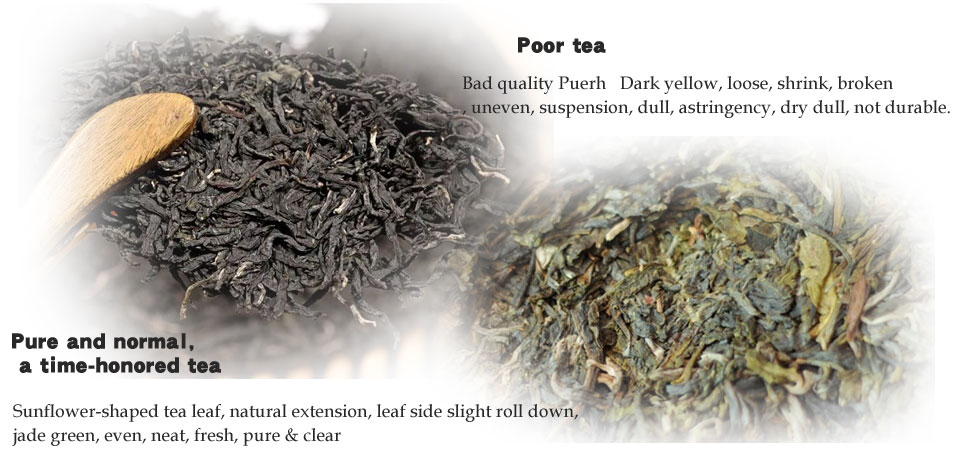Understanding these legal requirements ensures compliance with local laws and fosters a positive working relationship with your helper.In the eyes of industry experts, maid services Singapore Indeed, it has great development potential, which makes many investors more interested. https://1achieve.net
ESSENTIAL KNOWLEDGE
Bryan
7/30/20248 min read
Overview of the Legal Obligations of Employers
1. Employment Contract
Employers are required to provide a written employment contract to their domestic helpers. This contract should outline the terms of employment, including salary, rest days, job scope, and other relevant conditions.
Key Elements of the Contract: The contract should specify the helper¨s duties, working hours, rest days, salary, benefits, and termination conditions.
Signatures: Both the employer and the helper should sign the contract to acknowledge their agreement to the terms.
Having a clear and comprehensive employment contract helps prevent misunderstandings and provides a reference point for resolving disputes. It should be drafted in a language that the helper understands to ensure full comprehension and mutual agreement. Providing a copy of the contract to the helper and keeping a signed copy for the employer’s records is essential.
2. Work Permit
Employers must apply for a work permit for their domestic helper through the Ministry of Manpower (MOM). The work permit is essential for legal employment in Singapore.
Application Process: Submit the necessary documents and pay the required fees to obtain the work permit. The application can be done online through MOM¨s website, and it typically involves providing details about the employer, the helper, and the employment terms.
Renewal: The work permit must be renewed before it expires. Employers should monitor the permit¨s validity and initiate the renewal process in advance. The renewal process also involves medical examinations and possibly renewing the security bond and insurance.
3. Monthly Levy
The employer is responsible for paying a monthly levy to MOM. The levy rate depends on the household¨s specific circumstances, such as whether there are young children, elderly, or disabled family members.
Levy Rates: The standard levy rate is SGD 300 per month, while the concessionary rate is SGD 60 per month for eligible households. The concessionary levy can significantly reduce the financial burden on the employer.
Payment: Ensure timely payment of the levy to avoid penalties. Levy payments can be made via various methods, including GIRO, and it¨s important to set up the payment system to avoid missing deadlines.
4. Medical Insurance and Security Bond
Employers are required to purchase medical insurance and provide a security bond for their domestic helpers.
Medical Insurance: A minimum coverage of SGD 15,000 per year for inpatient care and day surgery is mandatory. This insurance protects both the helper and the employer in case of medical emergencies.
Security Bond: A SGD 5,000 security bond (for non-Malaysian helpers) acts as a financial guarantee to the Singapore government. This bond can be in the form of insurance, which typically costs around SGD 50 to SGD 80 per year. The security bond ensures compliance with MOM regulations and covers potential repatriation costs or violations of employment terms.
5. Settling-In Programme (SIP)
First-time domestic helpers must attend the Settling-In Programme within three working days of arrival in Singapore. The SIP educates helpers on safety measures, living in Singapore, and their rights and responsibilities.
Cost: The SIP costs SGD 75 and is a one-day course. Employers should ensure that their helpers attend this programme as it is crucial for their adjustment and understanding of local regulations.
Enrollment: Employers should arrange for their helper to attend the SIP promptly. The programme covers essential topics such as emergency procedures, workplace safety, and cultural adaptation, which are vital for the helper’s well-being and integration.
6. Rest Days
Domestic helpers are entitled to one rest day per week. Employers and helpers can mutually agree to compensate rest days with payment if the helper agrees to work on her rest day (Minimum 1 Rest Day per month).
Compensation Rate: The compensation should be at least one day¨s salary for each rest day worked. This ensures that helpers are fairly compensated for additional work and helps maintain their well-being.
Agreement: Any agreement to work on rest days should be documented and mutually agreed upon. It¨s essential to discuss and formalize these agreements to prevent misunderstandings and ensure that the helper¨s rights are respected.
7. Medical Check-Ups
Domestic helpers must undergo regular medical check-ups to ensure they are fit for work. The first medical examination should be conducted within two weeks of the helper¨s arrival, followed by six-monthly check-ups.
Cost: Employers are responsible for the cost of these medical examinations. Ensuring the helper’s health is a critical part of maintaining a safe and healthy work environment.
Results: Employers should ensure the results are submitted to MOM promptly. Regular health checks help detect any health issues early and ensure that the helper remains fit for her duties.
8. Fair Treatment
Employers must treat their domestic helpers fairly and with respect. This includes providing adequate food, accommodation, and a safe working environment.
Food: Provide nutritious meals that meet the helper¨s dietary requirements. Discuss the helper¨s dietary preferences and ensure that meals are balanced and sufficient.
Accommodation: Ensure the helper has a suitable place to sleep with privacy and basic amenities. The living space should be clean, safe, and comfortable, contributing to the helper¨s overall well-being.
Safety: Maintain a safe working environment and provide training on the use of household equipment. Employers should also ensure that the helper has access to necessary safety gear and knows how to handle emergencies.
9. Repatriation
Employers are responsible for repatriating their domestic helpers at the end of the employment contract or if the employment is terminated. This includes providing the necessary travel arrangements and covering the cost of repatriation.
Travel Arrangements: Ensure that the helper¨s travel documents are in order and book the necessary transportation.
Cost Coverage: The employer must cover the cost of repatriation, ensuring that the helper returns home safely.
Rights of Domestic Helpers Under Singapore Law
1. Right to a Written Contract
Domestic helpers have the right to receive a written employment contract that clearly outlines their terms of employment. This contract serves as a reference point for resolving disputes and ensuring both parties understand their obligations.
Clarity and Transparency: The contract should be written in a language the helper understands, ensuring full comprehension of the terms.
Dispute Resolution: The contract serves as a legal document that can be used to resolve any disputes that may arise during the employment period.
2. Right to Fair Compensation
Domestic helpers are entitled to receive their agreed-upon salary on time and in full. Employers should provide a payslip or receipt for each payment to ensure transparency.
Salary: Must be paid within seven days after the end of each salary period. This ensures that helpers are compensated promptly for their work.
Payslip: Employers should issue a payslip detailing the salary amount and any deductions. This helps maintain transparency and allows helpers to keep track of their earnings. If a payslip is not available, there should be a signed record on the receipt of each payment.
3. Right to Rest Days
Helpers are entitled to one rest day per week (minimum 1 rest day per month). This rest day can be used for personal activities, rest, or socializing.
Rest Day Agreement: Any agreement to work on rest days should be mutually agreed upon and documented. Helpers should have the freedom to enjoy their rest days without pressure.
Compensation: Helpers should be compensated if they agree to work on their rest day. This ensures fair treatment and respect for the helper¨s time.
4. Right to Adequate Accommodation
Employers must provide domestic helpers with adequate accommodation that ensures their privacy and comfort.
Private Room: Ideally, a private room with proper ventilation and basic amenities. This ensures that the helper has a comfortable and private living space.
Shared Accommodation: If sharing, ensure the helper¨s privacy and comfort are respected. The living arrangements should be discussed and agreed upon by both parties.
5. Right to Medical Care
Helpers are entitled to medical care, including medical insurance coverage for inpatient care and day surgery.
Medical Insurance: Employers must purchase medical insurance with a minimum coverage of SGD 15,000 per year. This ensures that helpers have access to necessary medical care without financial burden.
Medical Check-Ups: Regular medical check-ups to ensure the helper is fit for work. Employers should ensure that the helper receives timely medical attention and that any health issues are addressed promptly.
6. Right to Fair Treatment and Respect
Domestic helpers have the right to be treated fairly and with respect. This includes freedom from abuse, harassment, and unfair treatment.
Protection from Abuse: Employers must not abuse or exploit their helpers physically, emotionally, or verbally. Any form of abuse is a serious violation of the helper¨s rights and should be reported to the authorities.
Complaint Mechanisms: Helpers can report any abuse or unfair treatment to MOM or other relevant authorities. Employers should be aware of these mechanisms and ensure that helpers are informed about their rights.
7. Right to Privacy and Communication
Helpers have the right to communicate with their family and friends. Employers should respect their privacy and allow them to make phone calls or use other means of communication.
Communication Facilities: Provide reasonable access to communication facilities. This helps the helper stay connected with her family and support network.
Privacy: Respect the helper¨s privacy during her rest time and personal activities. Employers should ensure that the helper has a private space for communication and personal activities.
8. Right to Termination and Transfer
Helpers have the right to terminate their employment contract and seek a transfer to another employer under certain conditions.
Notice Period: Provide the agreed notice period as stipulated in the employment contract. This ensures that both parties have time to make necessary arrangements.
Transfer Process: Follow the legal procedures for transferring to another employer. Employers should assist the helper in the transfer process and ensure that all legal requirements are met.
9. Right to Proper Working Conditions
Domestic helpers have the right to proper working conditions, including reasonable working hours, safe working environments, and access to necessary resources.
Reasonable Working Hours: Employers should ensure that helpers are not overworked and have adequate rest periods.
Safe Working Environment: Provide a safe and healthy working environment, including proper training on the use of household equipment and safety procedures.
Access to Resources: Ensure that helpers have access to necessary resources and tools to perform their duties effectively.
10. Right to Training and Development
Domestic helpers have the right to training and development opportunities to enhance their skills and knowledge.
Skill Enhancement: Employers can provide or facilitate training programs to help helpers improve their skills and knowledge. This benefits both the helper and the employer by enhancing job performance.
Development Opportunities: Encourage and support helpers in pursuing development opportunities. This can include attending courses or workshops that are relevant to their job.
11. Right to Dignity and Respect
Domestic helpers have the right to be treated with dignity and respect at all times.
Respectful Treatment: Employers should treat helpers with respect, acknowledging their contributions and ensuring that their dignity is upheld.
Positive Working Relationship: Foster a positive working relationship based on mutual respect and understanding. This contributes to a harmonious and productive household environment.
12. Right to Seek Help and Support
Domestic helpers have the right to seek help and support if they face any issues or challenges during their employment.
Support Networks: Encourage helpers to seek help and support from their support networks, including friends, family, and community organizations.
Helplines and Services: Inform helpers about available helplines and services where they can seek assistance if needed. Employers should be supportive and understanding if helpers need to seek external help.






